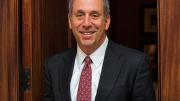I started advising first-year students in 1977, telling them mostly what I wished someone had told me when I was in their shoes just a few years earlier. In the years since, I have counseled hundreds of young people at MIT, Tufts, and now Harvard. I have learned a lot along the way about the advice students are seeking as well as the advice I should be giving them. Now, I share what I believe to be wisdom about life in college—and they remind me of the excitement and anxiety of starting the college experience and, for many, living away from home for the very first time.
Where do I begin our conversations? I start by reminding them that they have lots of people to help them transition to life at Harvard—academic advisers, peer advisers, deans, resident tutors, proctors, and others. By contrast, their families are on their own. I tell my advisees that it is their responsibility to help those left behind, and I encourage them to call and text their loved ones, and to ask them how they are doing with the transition.
Most students find life on campus radically different from their previous life. Unlike high school, they have control over when their classes begin and how much time there is between them. This freedom can lead to undesirable habits—waking up just before midday, class times scattered through the afternoon, practice and extracurricular activities consuming much of the time before and after dinner. When do students start preparing for the next day? When do they do their reading, p-sets, and papers? They often don’t begin this work until 9:00 p.m. and don’t finish it until well into the night. Instead, I suggest treating school like a 9 to 5 job. They should get to the library by 9:00 a.m. and return to it between classes. If they do so, they are far more likely to have time to rest and relax on the weekends.
Free time, in turn, creates opportunities for connection that enrich every aspect of being at Harvard. Yet these chances can be squandered if one’s thinking is fixed. When I spoke with incoming students at Convocation this year, I shared with them a story about my first-year roommate. Alan was very much my opposite. I made a quick judgment that we would never get along. Not only was this first impression wrong, it nearly deprived me of a lifelong friend who also introduced me to my wife, Adele. Being quick to judge and slow to understand is always a mistake, but especially so at Harvard where we construct a class from all over the world, people with different backgrounds, experiences, and interests who have as much to teach as they have to learn. In addition to making great friends, I also advise students to connect with their teachers. I believe the single best predictor of a terrific college experience is whether a student gets to know at least one faculty member well enough to stay in touch for the rest of their lives.
Many students arrive thinking they know exactly what they want to do when they graduate. But a big part of going to college is exploring new ways of seeing and understanding the world. I always challenge students to play to their weakness and not to their strength. Moreover, I encourage my advisees to take one course each semester in a subject that they know nothing about. I wish I had a dime for every student who followed this advice and discovered their passion, often late in their college career. Most students change their minds about what they want to pursue, and choosing a concentration is different than pursuing a career. The latter can wait and is more often than not the result of serendipity. After all, a career can only be understood with the benefit of hindsight, often on the day we retire.
Finally, I tell my advisees that almost everyone struggles during their first year. In fact, first-year performance is often a proxy for how prepared students are coming out of high school. By second year, just about everyone has come up to speed and is capable of excelling. What they do with the time remaining is what matters most. With forty-five years now in the rearview mirror, I can say with confidence that moments of excitement and anxiety—no matter when in life they arise—are opportunities to grow beyond one’s imagination.
Sincerely,
Lawrence S. Bacow
President









